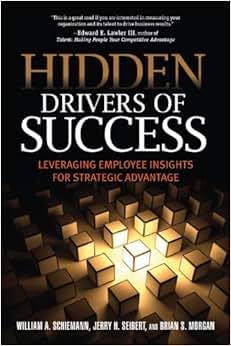
What Are the Risks of Joining a Prop Trading Firm?
Ever considered jumping into the world of proprietary trading? It’s an enticing landscape—high-stakes action, the promise of big profits, and the chance to work with cutting-edge technology. But, like any game with big rewards, it’s essential to know the risks lurking behind the shiny veneer. Before putting your hard-earned money or sweat equity into a prop trading firm, you need to understand what you’re really signing up for.
The Allure and the Hidden Pitfalls
Prop trading firms often promise a fast track to financial independence, offering traders the opportunity to leverage a firm’s capital rather than risking their own. It sounds perfect—try your hand at different assets, from forex and stocks to crypto and commodities, all with a safety net. But beneath this shiny surface are some serious risks that can make or break your trading journey.
Risk of Financial Loss and Overleveraging
One of the most glaring dangers is the potential for severe financial losses. Prop firms typically allow traders to leverage their capital, which can amplify profits but equally magnify losses. I’ve spoken with traders who believed they had a ‘bulletproof’ strategy, only to see the market turn against them when over-leveraged. It’s like riding a rollercoaster without a seatbelt—thrilling until suddenly it’s not. The key is managing leverage carefully, recognizing that the market can be unpredictable, especially across various assets like crypto or indices.
Restrictive and Sometimes Unclear Contract Terms
Many prop firms operate under contracts that can be murky on penalty clauses or drawdown limits. Some are flexible, but others might impose strict daily or aggregate drawdowns, forcing you to close positions prematurely or forfeit your gains. An example? Traders who hit a streak of wins might suddenly face a trading halt if they breach a supposedly soft limit, limiting access to their own earnings. It pays to scrutinize these terms beforehand—know what’s expected and where the lines are drawn.
High-Pressure Environment and Psychological Strain
Trading with firm’s capital isnt just about the technical skill; the pressure to perform consistently can get intense. The high-stakes environment often demands rapid decision-making, where mistakes can be costly—not just financially but psychologically. For traders dabbling in volatile assets like crypto or options, stress levels can skyrocket. Over time, this could lead to burnout or emotional trading, which often hits the brakes on long-term success.
Market Environment and Regulatory Risks
The financial industry is in a state of flux, especially with the rise of decentralized finance (DeFi) and AI-driven trading. Many prop firms are trying to stay ahead of the curve—some adopting new tech, others facing regulatory uncertainty. For instance, decentralized exchanges and self-custody solutions are reshaping how traders operate, but they come with hurdles like security risks and fluctuating legal landscapes. Firms that fail to adapt or operate within clear regulatory frameworks could face shutdowns, legal issues, or loss of traders’ funds.
The Growing Role of AI and Automation
The future of prop trading is certain to include more AI and algorithmic trading systems. While these innovations can enhance efficiency, they also raise risks—like algorithm failures, unintended market manipulation, or technology incompatibilities. I’ve seen traders who rely heavily on AI tools sometimes caught off guard when an unexpected market shock occurs. That’s a reminder: relying solely on machines without human oversight can be dangerous.
The Promise of the Future: Trends to Watch
The landscape is evolving rapidly. Decentralized finance aims for democratized access, but it’s riddled with security concerns and scalability issues. Meanwhile, smart contracts and AI are setting the stage for a new slice of the trading pie—more automated, transparent, and potentially disruptive. Still, these advancements come hand-in-hand with regulatory uncertainty and new types of cyber risks.
Navigating the Risk-Rewards Equation
If you’re thinking about joining a prop trading firm, weigh the risks against the rewards. Understand your own risk tolerance—can you handle the emotional rollercoaster? Do you have the discipline to manage leverage and stick to your trading plans? And crucially, do your due diligence on the firm’s terms, reputation, and technology infrastructure.
It’s worth noting that prop trading is not a guaranteed fast lane to riches. Success depends on continuous learning, risk management, and adapting to market shifts—whether that’s volatile forex markets, digital assets, or emerging AI-driven systems.
In a Nutshell
Joining a prop trading firm can be a game-changer, but only if you’re aware of the risks involved. Embrace the potential, but don’t ignore the pitfalls. Stay alert to market developments, be cautious with leverage, understand your firms rules, and keep a finger on the pulse of industry trends like DeFi and AI.
Remember—smart traders aren’t those who avoid risk, but those who understand it.
Trade smart, stay prepared—thats the real edge in prop trading.